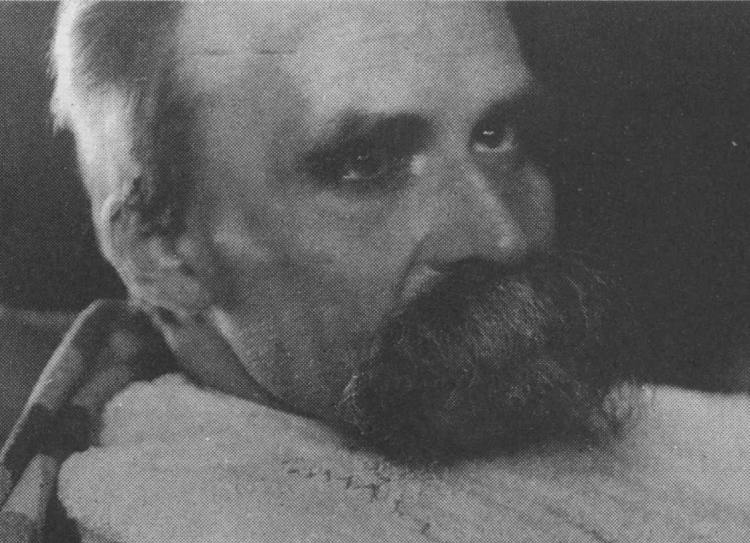Friedrich Nietzsche was a German philosopher of the 19th century, apart from having one of the most bad-ass mustaches in history (just look at it!), he is one of the most revolutionary thinkers in Western philosophy and intellectual history. He was a cultural critic of his era, of traditional European morality and religious fundamentalism, especially of Christianity.
Nietzsche’s life was not an easy one. It is the story of a man who from the beginning of his adult life, until the sudden and devastating end of his productive period, was ostracised from the intellectual community of his time and plagued by ill health.
In 1889, Nietzsche suffered a mental breakdown. As he was taking a walk through the city streets, he saw a horse being whipped by its owner, he ran to the horse and threw his arms around its neck to protect it, then collapsed to the ground. He never recovered.

He was diagnosed with syphilis, but this claim has since been challenged and a diagnosis of manic-depressive illness with a periodic psychosis followed by dementia, explained by the slow growth of a tumour, was put forward. He died in 1900.
As a writer, Nietzsche achieved very little success, often times selling only a few copies of his books per year. It wasn’t until his death that his work began to flourish and become popular.
His sister, Elisabeth assumed the role of editor of her brother’s unpublished works and manuscripts, to fit her own views which were heavily associated with Nazism. This is why Nietzsche has been misrepresented as a predecessor to Nazism. He actually despised anti-Semitic people, which was apparent in his works. He thought highly of the Jews, as intellectuals, and as an important contribution to European culture.

After his mental breakdown that would consume the last 11 years of his life, he wrote letters for a short period of time called the “Madness Letters” and signing them alternatively as “Dionysus” or “The Crucified”.

Dionysus is the Greek god of fertility and wine, the ultimate “yes” to life, and The Crucified is an allusion to Jesus, which Nietzsche called “the one and last true Christian” with his authentic Christianity dying with him on the cross, this may be less an attack on Jesus himself and more an attack on Christianity and its willingness to escape reality into an imaginary afterlife, it is the ultimate “no” to life.
The root of our misery and suffering is our constant tendency to divide our lives into “Yes” and “No”. By declaring that happiness means the presence of “yes” and that misery means the presence of “no”, we surrender control of our happiness into the hands that we cannot control. His solution was what he called amor fati, the love of fate, to love everything that happens. To become a Yea-sayer.
The book which set the stage for everything he had to say was Thus Spoke Zarathustra, which he considered his greatest work. After this, he published Beyond Good and Evil, another of his most famous works. Nietzsche did not write for the general public, but for an intellectual minority.
He is also credited to being an early psychologist, developing certain concepts related to psychology such as the will to power. He considered psychology to be the queen of science, playing a huge role in our decisions, thoughts, and philosophy.
His criticisms rely on a psychological point of view of the popular belief of his time, and questioning our most fundamental beliefs by pointing out their shakiness and scrutinising available alternatives in a new vision of the value of life.
Nietzsche shares his views on how he wants us to perceive the world liberating ourselves from oppressive tradition. The main concepts revolve around self-overcoming, perspectivism, human nobility, the Will to Power, the Eternal Recurrence, and the Overman.
Perhaps his most misunderstood statement is God is Dead, not a celebratory, but a tragic statement.
Nietzsche encourages us to continue to confront our doubts about the well roundedness of many of our most fundamental ideals about ourselves and our world.
We conceive of ourselves as subjects trying to live a decent life, guided in our doings by aims that fit the normal expectations of our social and cultural environment; we believe certain things to be true beyond any doubt, and we hold others and ourselves to many moral obligations.
For Nietzsche, to give life a meaning, it isn’t something to be discovered, but rather to be created. The overman is the truth that shall be. The overman, the will to power, self-overcoming, to live dangerously, amor fati, the eternal recurrence, these are all signs by which Nietzsche found meaning in life.
“I know my fate. One day my name will be associated with the memory of something tremendous — a crisis without equal on earth, the most profound collision of conscience, a decision that was conjured up against everything that had been believed, demanded, hallowed so far. I am no man, I am dynamite.”
And he was right, he is dynamite. One of the greatest philosophers to have ever lived.
📚 Book recommendations
As an Amazon Associate, I earn from qualifying purchases at no additional cost to you.
📺Watch The Full Video!🧠
Greatest Philosophers In History | Friedrich Nietzsche
Nietzsche’s main concepts on living life revolve around self-overcoming, amor fati, perspectivism, human nobility, the will to power, the eternal recurrence, and the overman.
Support Eternalised












Amor Fati is one of my favorite philosophical concepts.
Absolutely! So life affirming 🙂 Thanks for commenting and reading!
Great stuff. If your interested I wrote an article on Amor Fati https://alifeofvirtue.ca/2020/04/04/amor-fati-and-the-acceptance-of-what-is-necessary/
Awesome! Will check it out now.